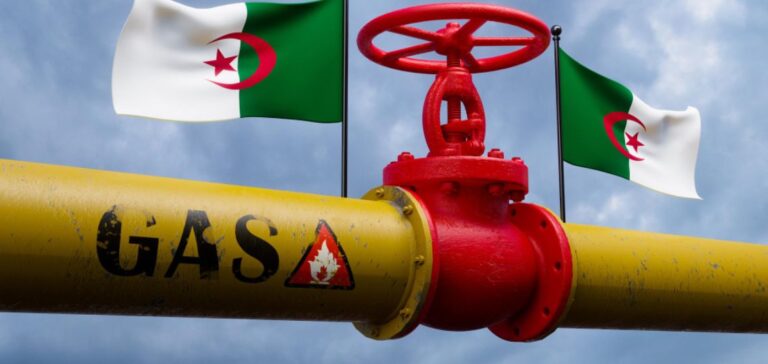Algeria has unveiled its energy ambitions, setting its target at an annual natural gas production of 200 billion cubic meters (m³) by 2030. This announcement comes as the country seeks to significantly boost its exports while addressing steadily rising domestic consumption. Currently, Algeria produces about 137 billion m³ of natural gas per year, placing this new target nearly 50% above its current capabilities. To achieve this, the country plans significant investments, notably in exploration and infrastructure enhancement.
Strategic Expansion of Hassi R’Mel
The Hassi R’Mel field, considered Africa’s largest gas field, is central to this strategy. Operated by the National Company for Research, Production, Transport, Processing, and Marketing of Hydrocarbons (Sonatrach), this site alone accounts for 26% of the country’s daily national production. Sonatrach plans to commission three new gas compression stations by 2027, aiming for an additional recovery estimated at 121 billion m³ of natural gas. This expansion also includes 7 million tons of condensates and 3 million tons of liquefied petroleum gas (LPG), strategic resources for domestic and foreign markets.
Sonatrach has announced a global investment plan estimated at $50 billion for the period 2024-2028. Of this amount, $36 billion will be specifically dedicated to gas exploration and production activities, essential for reaching the set objectives. Increased production is also supported by the recent discovery of eight promising new fields in 2023, offering the country enhanced prospects for energy supply.
Development of Regional Infrastructure
Algeria is positioning itself as a strategic player on the international gas chessboard through the Trans-Saharan gas pipeline project, aimed at connecting Nigeria to Europe via Algerian territory. This infrastructure aims to enhance direct access to the European market, particularly sensitive to energy security issues over recent years. The pipeline constitutes a key component in achieving the goal of exporting nearly 100 billion m³ annually internationally, thus consolidating Algeria’s position among major global suppliers.
The economic importance of this project is significant, as it would secure stable revenues from exports and strengthen commercial ties between Africa and Europe. This initiative is also part of the country’s long-term vision aimed at maximizing the exploitation of its natural resources while capitalizing on its strategic geographic position. In this context, Algeria maintains increased interest in international partnerships and regional integration in energy matters.





















